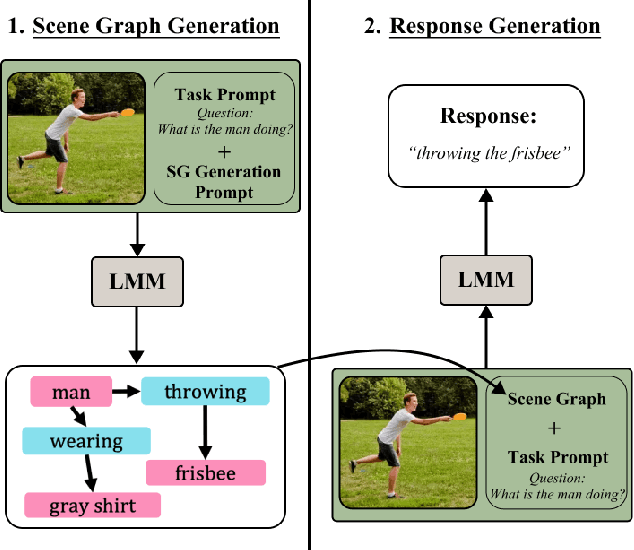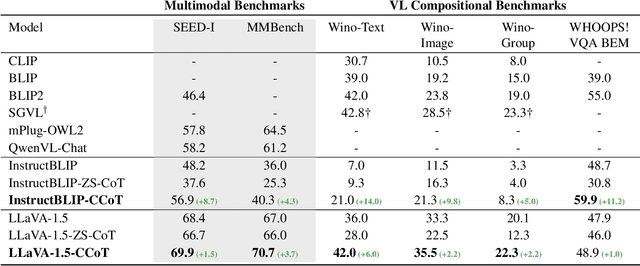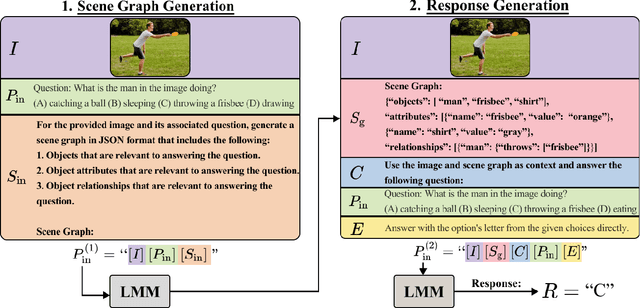Compositional Chain-of-Thought Prompting for Large Multimodal Models
Paper and Code
Nov 27, 2023



The combination of strong visual backbones and Large Language Model (LLM) reasoning has led to Large Multimodal Models (LMMs) becoming the current standard for a wide range of vision and language (VL) tasks. However, recent research has shown that even the most advanced LMMs still struggle to capture aspects of compositional visual reasoning, such as attributes and relationships between objects. One solution is to utilize scene graphs (SGs)--a formalization of objects and their relations and attributes that has been extensively used as a bridge between the visual and textual domains. Yet, scene graph data requires scene graph annotations, which are expensive to collect and thus not easily scalable. Moreover, finetuning an LMM based on SG data can lead to catastrophic forgetting of the pretraining objective. To overcome this, inspired by chain-of-thought methods, we propose Compositional Chain-of-Thought (CCoT), a novel zero-shot Chain-of-Thought prompting method that utilizes SG representations in order to extract compositional knowledge from an LMM. Specifically, we first generate an SG using the LMM, and then use that SG in the prompt to produce a response. Through extensive experiments, we find that the proposed CCoT approach not only improves LMM performance on several vision and language VL compositional benchmarks but also improves the performance of several popular LMMs on general multimodal benchmarks, without the need for fine-tuning or annotated ground-truth SGs.
 Add to Chrome
Add to Chrome Add to Firefox
Add to Firefox Add to Edge
Add to Edge